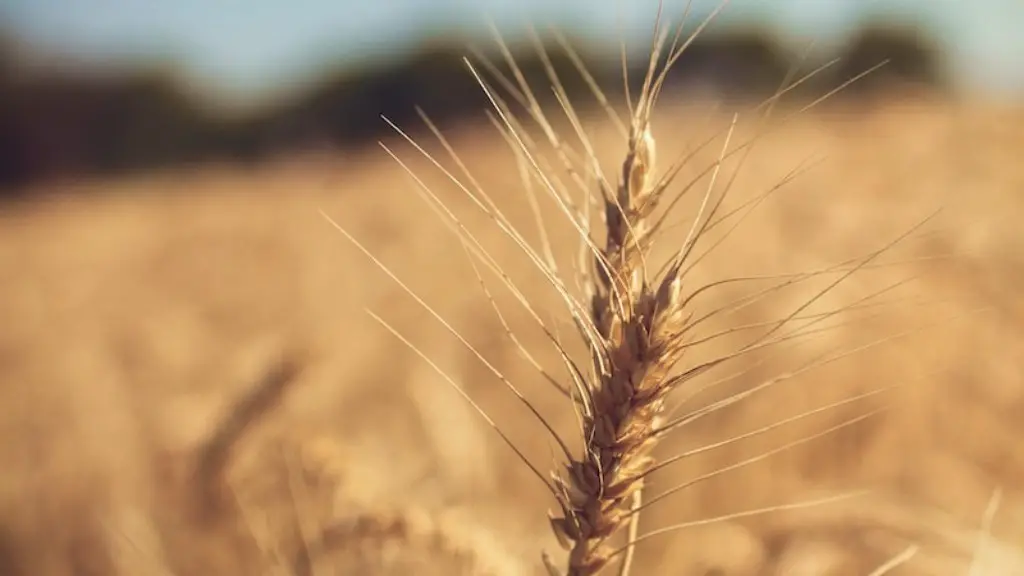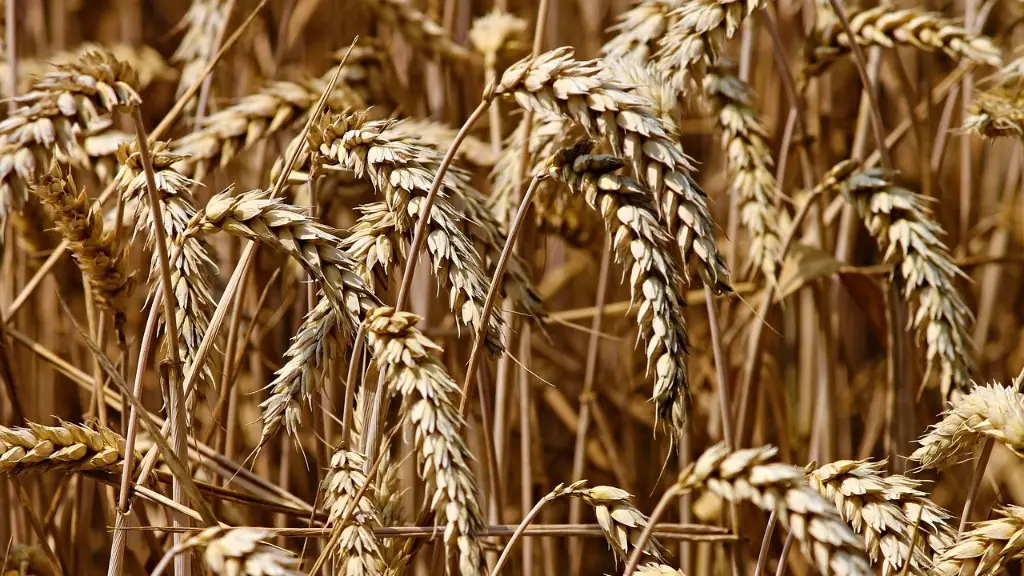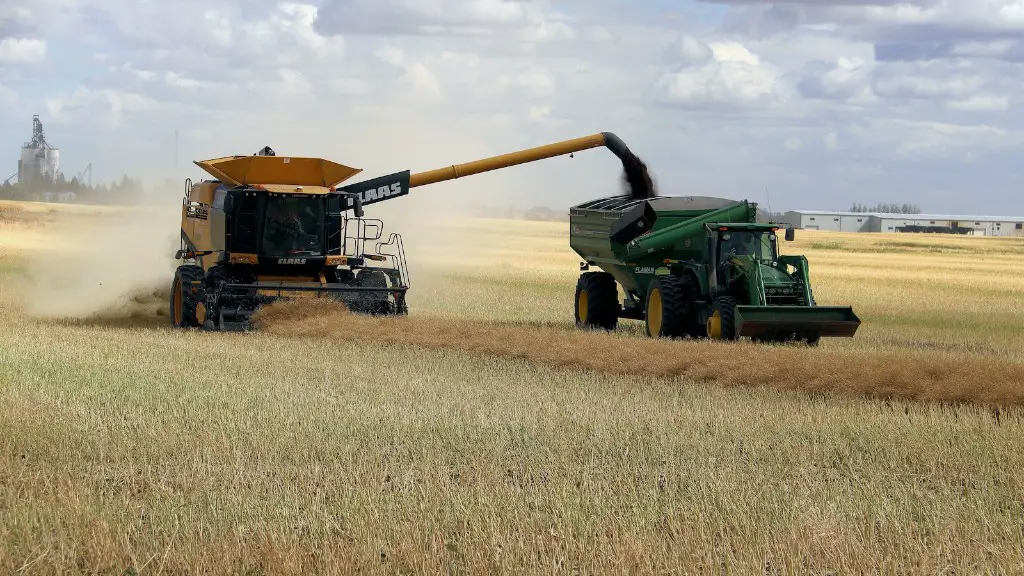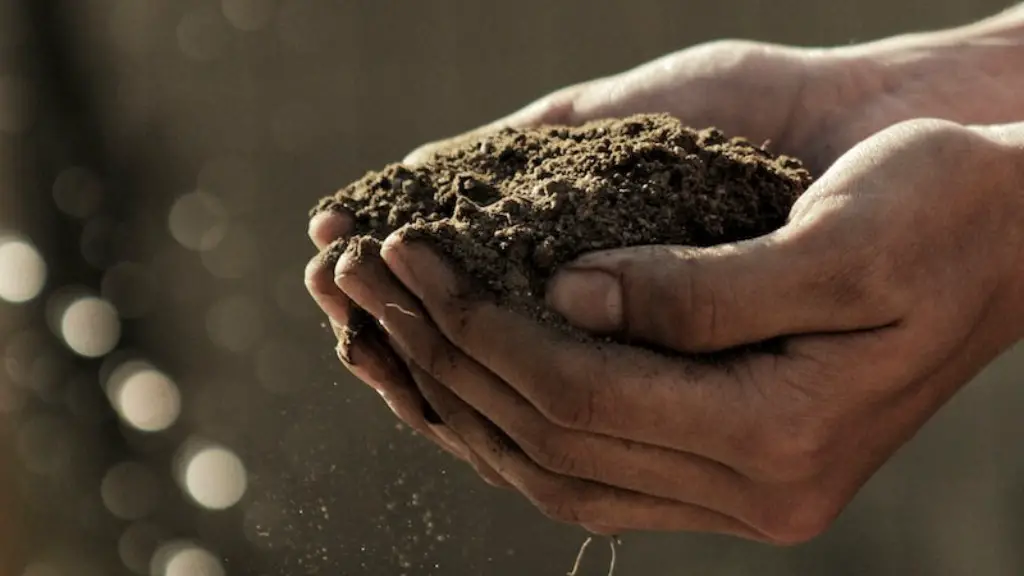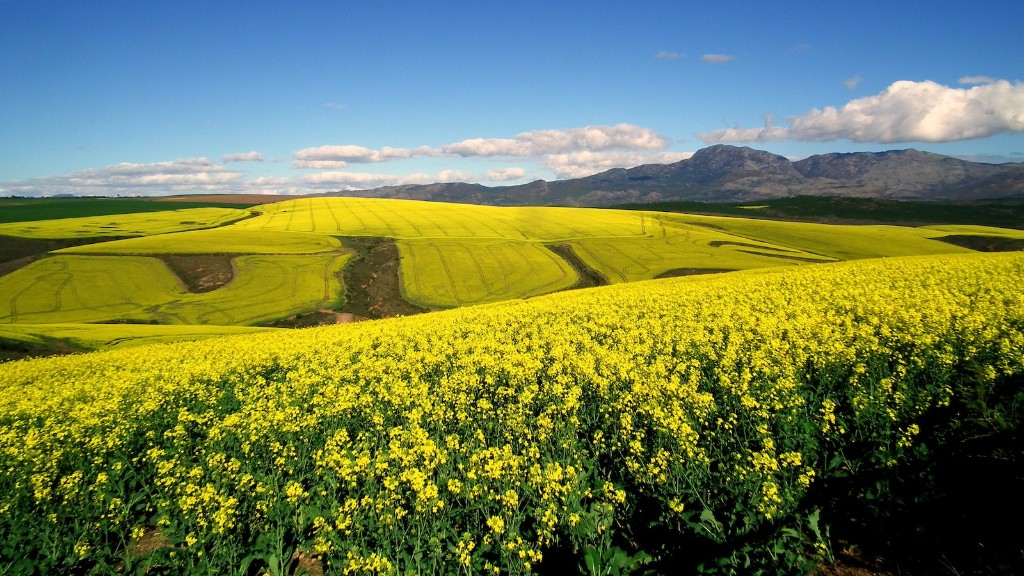The invention of agriculture is one of the most important events in human history. Agriculture allowed for the domestication of plants and animals, which led to the development of civilizations. Agriculture allowed for the growth of cities and the rise of civilizations. The invention of agriculture was important because it allowed for the growth of food surpluses, which allowed for the development of trade and commerce. Agriculture also allowed for the growth of civilizations by providing food and shelter for people.
Agriculture is the process of producing food, feed, fiber and other goods by farming. It includes the preparation of the land for planting, growing and harvesting crops, and the raising of livestock.
The invention of agriculture was important because it allowed for the domestication of plants and animals, which led to the development of civilizations. Agriculture allowed for the growth of cities and the rise of empires. It also allowed for the exchange of goods and ideas between cultures.
What is agriculture and why is it important?
Agriculture is an important part of human civilization and has been practiced for thousands of years. It is the process of cultivating natural resources to sustain human life and provide economic gain. Agriculture combines the creativity, imagination, and skill involved in planting crops and raising animals with modern production methods and new technologies. It is a vital part of the global food system and plays a significant role in the economy and in the way we live our lives.
The Agricultural Revolution was a major turning point in human history. It marked the transition from a hunter-gatherer lifestyle to one based on the domestication of plants and animals. This change allowed for the development of communities and the growth of civilizations. The Agricultural Revolution was a slow and gradual process that took place over the span of several thousand years. It began around 10,000 years ago and continued until the early 1900s.
What does agriculture mean in history
Agriculture is the cultivation of food and goods through farming. It is thought to have been practiced sporadically for the past 13,000 years, and widely established for only 7,000 years. Agriculture produces the vast majority of the world’s food supply.
The reaper, thresher, steam engine, combine, automobile, tractor, and hydraulics are all inventions that have changed how farmers produce food. The reaper allows farmers to harvest small grains much more quickly and efficiently than by hand. The thresher makes it possible to remove kernels from the straw much more quickly and easily than before. The steam engine powers the thresher and the combine, making both of them much more efficient. The combine allows farmers to harvest and thresh grain much more quickly and easily than before. The automobile provides farmers with a much faster and more efficient way to transport their crops to market. The tractor allows farmers to plow, plant, and harvest their fields much more quickly and easily than before. Hydraulics make it possible for farmers to lift and move heavy loads, such as bales of hay, much more easily than before.
What is agriculture in a sentence?
There are a few things that need to be taken into account when discussing the rise of agricultural products and perfecting them for export. Firstly, it’s important to note that these products typically come from agricultural communities. As such, it’s necessary to have a good understanding of the needs and wants of these people in order to ensure that the products are of a high quality. Secondly, the town or city in which the products will be exported to should have a large agricultural trade. This will ensure that there is a market for the products and that they will be able to fetch a good price. Finally, it’s also important to make sure that our own agricultural processes are up to par. If they’re not, then it’s likely that the products will be of a lower quality and will be less desirable to buyers.
Agriculture plays a critical role in the entire life of a given economy. Agriculture is the backbone of the economic system of a given country. In addition to providing food and raw material, agriculture also provides employment opportunities to a very large percentage of the population.
Who invented agriculture first?
In New Guinea, ancient Papuan peoples began practicing agriculture around 7000 BC, domesticating sugarcane and taro. In the Indus Valley from the eighth millennium BC onwards at Mehrgarh, 2-row and 6-row barley were cultivated, along with einkorn, emmer, and durum wheats, and dates.
Agriculture allowed for the domestication of plants and animals, which led to the development of civilizations. Agriculture allowed for the growth of cities and the rise of empires. Agriculture is responsible for the food we eat today and the clothes we wear.
What is agriculture Short answer
Agriculture has been a vital part of human society for millennia, playing a key role in both our economic development and our cultural heritage. Today, it continues to be a critical sector of the global economy, providing food, fiber, and fuel for a growing population.
However, agriculture faces a number of challenges in the coming years. First, climate change is already affecting crop yields and will likely cause even more extreme weather events that can damage crops and livestock. Second, the world’s population is projected to reach 9.8 billion by 2050, meaning that there will be an increased demand for food and other agricultural products. Lastly, agriculture is a major source of greenhouse gas emissions, which contribute to climate change.
To meet these challenges, we need to invest in sustainable agriculture practices that can help us increase food production while reducing our environmental impact. This includes things like investing in climate-friendly farming practices, developing new technologies and genetically modified crops, and promoting conservation efforts.
The occupation of farming is concerned with the cultivation of land in order to raise crops or livestock. Farmers must have knowledge of the land, the climate, and the types of plants and animals that they are raising in order to be successful. Farming is both an art and a science, and it requires a great deal of hard work and dedication.
What is the best definition of the word agricultural?
Agriculture is the practice of growing crops or raising animals. Someone who works as a farmer is in the agriculture industry. The Latin root of agriculture is agri, or “field,” plus cultura, “cultivation.” Cultivating a piece of land, or planting and growing food plants on it, is largely what agriculture means.
The World Bank Group is a leading financier of agriculture. It is committed to helping developing countries raise incomes and improve food security for the poorest people in the world. Agriculture can help reduce poverty, raise incomes and improve food security for the vast majority of the world’s poor, who live in rural areas and work mainly in farming. The World Bank Group provides financing and technical assistance for agricultural development projects that aim to increase productivity, improve rural infrastructure, and promote agricultural trade and market access. It also supports research and innovation, and helps countries develop policies and regulations that create an enabling environment for sustainable agriculture.
What is the most important agriculture
Productivity of agricultural land differs greatly around the world. In 2014, the top 37 milk producing countries generated a total of 569 million tons of milk. This is more than half of the world’s milk production. The United States, India, and China are the top three milk producing countries, accounting for 19.4%, 18.2%, and 10.9% of global milk production, respectively. The top 14 wheat producing countries generated a total of 724 million tons of wheat in 2014. This is nearly one-third of the world’s wheat production. China, India, and the United States are the top three wheat producing countries, accounting for 21.4%, 18.4%, and 14.4% of global wheat production, respectively. The top 10 corn producing countries generated a total of 886 million tons of corn in 2014. This is nearly three-quarters of the world’s corn production. The United States, China, and Brazil are the top three corn producing countries, accounting for 36.4%, 21.4%, and 9.2% of global corn production, respectively.
Agriculture has been the source of raw materials to the leading industries like cotton and jute textiles, sugar, tobacco, edible and non-edible oils etc. All these industries depend directly on agriculture. Agriculture not only provides raw materials to these industries but also provides employment to a large number of people.
How do you explain agriculture to a child?
Agriculture is an important science that deals with the cultivation of soil for growing crops and rearing animals to provide food, wool, and other products. Effective agricultural practices can help to maximize crop yields and minimize the impact of pests and diseases.
Agriculture is the science and art of cultivating plants and livestock. The history of agriculture began thousands of years ago. After gathering wild grains beginning at least 105,000 years ago, nascent farmers began to plant them around 11,500 years ago.
Conclusion
Agriculture is the art and science of cultivatiing the soil, growing crops and raising livestock. Agriculture was the invention of important because it allowed for the domestication of plants and animals, which led to the development of civilizations.
The invention of agriculture was important because it allowed humans to domesticated plants and animals, which led to the development of civilizations. Agriculture allowed for the growth of cities and the rise of civilizations. With the domestication of plants and animals, humans were able to provide food for themselves and others, which led to the development of trade and commerce. Agriculture allowed for the growth of populations and the rise of mighty empires.
